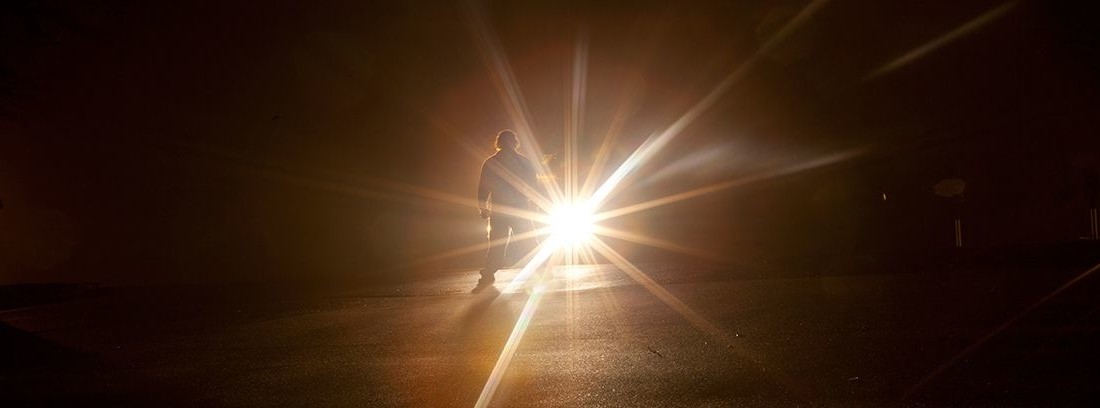Thanatophobia or fear of death

Man needs certainty by nature. When a doubt assails us, we need to resolve it. This is exactly how evolution began. However, not all questions have the same degree of difficulty. Existential questions have haunted us forever. Already the ancient Greek myths spoke of Eros (love, creation) and Thanatos (death). We know that we exist, but not what sense does it make, or for how long or if there will be something afterwards. These fundamental questions generate different reactions in people and, in some, the so-called thanatophobia or fear of death.
What is and what is not?
The fear of death is not something rare, it is something very frequent and natural in humans. In fact, it is to a certain extent necessary and adaptive since it leads us to protect ourselves in dangerous situations. It has to do with our instinct for survival and preservation as a species. The problem begins when that fear becomes acute, invading and blocking the person's day-to-day with constant anxiety. It is the transition from fear to death phobia or thanatophobia.
Among the main symptoms we can find:
- Obsessive and recurrent thinking related to death that generates high levels of anxiety (rapid heart rate, sweating, dizziness, weakness, dry mouth, numbness or tingling in the extremities, etc.).
- Avoidance of any situation related to death.
- Hypochondriacal ideas and need to control any minimal pain.
- Be aware of the irrationality of this fear, leading to feelings of guilt, sadness or fear of losing control.
- It can lead to panic attacks, depression, obsessive-compulsive disorder, among other problems.
Although it is usually associated, it is important not to confuse fear of death with thanatophobia with necrophobia or fear of everything that may be dead.
Who and when?
It is estimated that around 2% of the population has thanatophobia. It is more common in the middle or upper-middle class and with secondary or university studies. It occurs more in women. It usually begins between the ages of 20 and 40, and tends to decrease significantly after age 65, when death is integrated as part of the usual sequence of life.
Why are you afraid of death?
Like all phobias, it is not always easy to identify a cause that explains them. It may have originated from a traumatic experience related to death or something that has been explained to us in relation to it, but it may also have developed from some internal thought or emotion, without external references.
To do?
The objective is to be able to normalize the concept of process and integrate death as an inseparable part of life. The first of all is to understand what the person is specifically afraid of, since the treatment will be different in each case. The fear of death It is like a monster with several heads, since there can be several reasons that generate fear, among them:
- The unknown.
- A threatening afterlife (hell).
- The suffering.
- Dependence or inability to care for oneself.
- The finitude.
- The loss of control over our health and the important things in life.
- Not being able to see loved ones anymore.
- Incompleteness or dying without having been able to develop a full life project.
- Leaving people under their care (descendants, elders, etc.) unprotected.
Some recommendations:
- Talk about death, put words to it, and don't avoid the topic. It is usually a taboo subject and that leads to ideas that generate high psychological suffering.
- Really thinking about death and its implications when it really is a near possibility. People mature throughout life and, in this process, our ways of understanding the world do too. An adolescent does not think the same about death as an elderly person, so we cannot think about our old age from who we are in adolescence, simply because we do not know what will be important for us in the future because we have not lived it yet. It would be like an impossible times game.
- Derived from the previous concept, focus on what is really important today or in the short term and refrain from making remote or hypothetically unfounded proposals.
- Accept the uncertainty. Remember that "mortal", the word to refer to humans, is the exact opposite of "almighty" or "omnipotent" used for gods. We cannot know everything.
- Create meaning in life, have a rewarding life project. If you don't have it, look for it. Usually behind the fear of death there is actually a fear of life. The recovery from thanatophobia in this case would be to stop being a "living dead."
- If it is a problem that floods all the fundamental areas of the person, making daily life impossible, it is preferable to consult a psychotherapist. It would also be important to assess whether the fear of death is the problem itself or is part of another disorder.
- The fear of death is frequent and natural in humans. The problem begins when that fear becomes acute, invading and blocking the day to day with constant anxiety.
- To treat it, the first thing is to understand what the person is specifically afraid of, as it will vary the treatment. The fear of death is like a monster with several heads, since there can be several reasons that generate fear.
- Some general considerations would be: talk about death, not avoid the topic; think about it only when it is a near possibility; focus on life and have a rewarding life project ...
Specialist in Clinical Psychology
(Updated at Apr 13 / 2024)